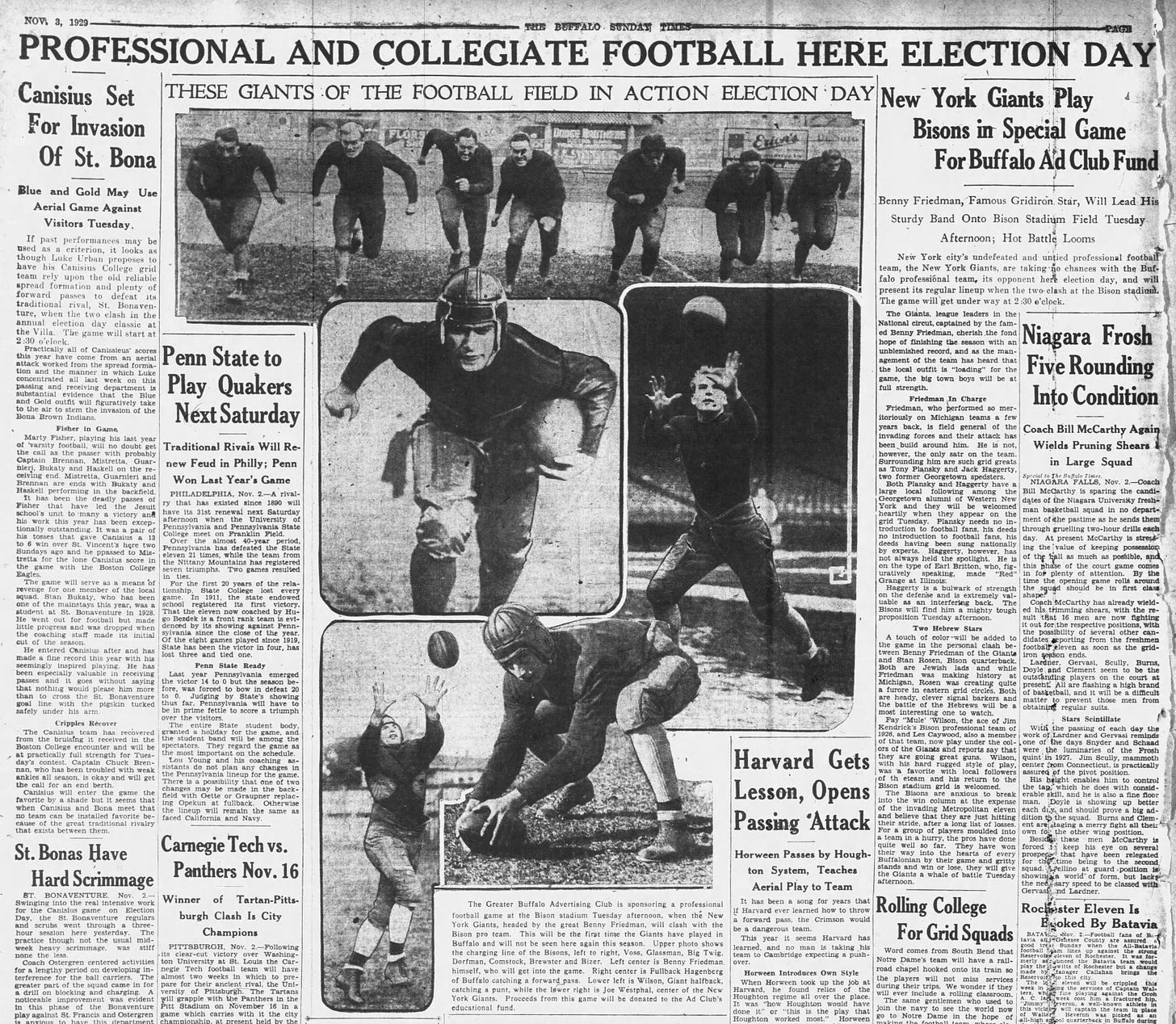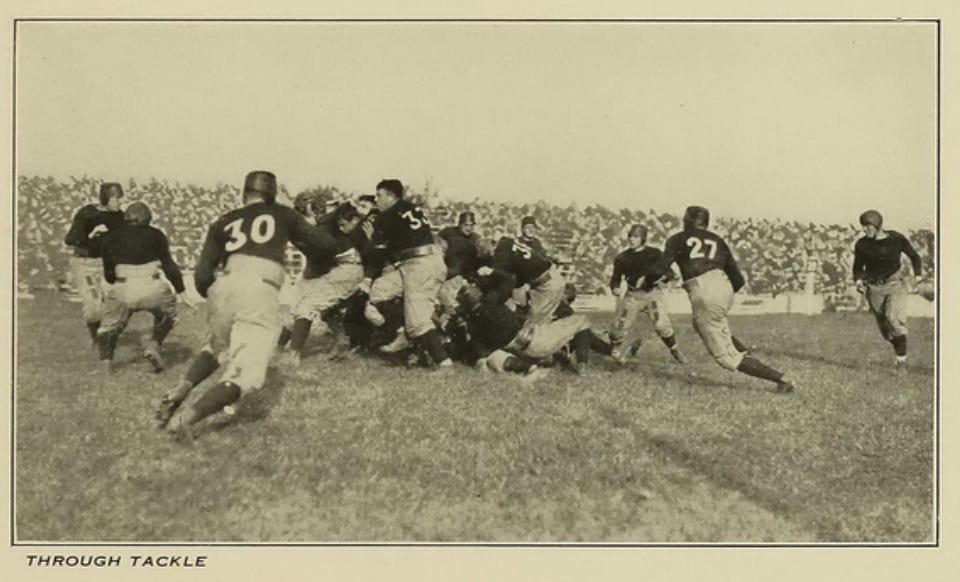Rutgers-LSU: Election Day Football 1922
Election Day football games have largely disappeared, but they were once a proud tradition in a few locations, with New York and New Jersey being the primary practitioners. Like Armistice Day games that previously graced the nation's playing fields, they have faded from the scene and our memory.
By the early 1900s, Election Day was a holiday in New York State, and the same was true in New Jersey. Some high schools played their rivals in a season-ending game delayed or moved up a few days in election years. Playing football while the polls were open made more sense than the silliness in Ohio, where a state law banned alcohol sales on Election Day.
Even professional football got into the act. The New York Giants played the Buffalo Bison on Election Day in 1929, while Canisius and St. Bonaventure went at it across town.
The New York-New Jersey tradition of Election Day football resulted in a 1922 matchup that broke another tradition when LSU played a game outside the South for the first time in program history. Taking on Rutgers at the Polo Grounds, the trip marked the first time most, if not all, the Tigers’ players visited Gotham City, which had to be the highlight of a disappointing 3-7 season for the Tigers.
Rutgers ended the season 5-4, so they did not set the world on fire either. Even worse, they were not yet the Scarlet Knights, going by the "Queensmen" moniker instead.
George Foster Sanford was in the 10th of 11 years coaching the Queensmen after head or assistant coaching gigs at Cornell, Columbia, Yale, and Virginia. Sanford was inventive, pioneering the oddball multi-kick method of holding for field goals and extra-point attempts.
Sanford was also an early adopter of the huddle and the coaching tower and played a key role in football's implementation of the clipping penalty. He was also among the first to use "shock troops," a strategy Knute Rockne made famous later in the 1920s with his deep Irish teams.
Football allowed limited substitutions in the early 1920s. The only substitution permitted under the 1922 rules was that a player leaving the game during the first half could re-enter the contest in the second half. Coaches whose rosters were deeper than their opponents had their second-string start the game, leaving them in as long as they held up to tire out the opponent's first string.
That's what Rutgers did when facing LSU on Election Day in 1922. Playing in poor weather on a sloppy field beaten up by hosting multiple games per week throughout the season, the Queensmen started their subs to tire out the Southerners on a cold, muddy field. It seemed like a good strategy, and it worked.

Rutgers played their subs during the scoreless first quarter, inserting their starters for the second. Despite LSU fumbling a few times and Rutgers being heavily penalized for holding, the Queensmen pushed one across to take a 7-0 lead at the half.
Rutgers dominated the second half. They added to their penalty total when the officials booted a Scarlet-clad lad for unnecessary roughness and imposed a half-the-distance penalty. Football did not yet cap the half-the-distance penalty at 15 yards, so the penalty committed at midfield led to the Scarlet Boys retreating 25 yards.
Still, Rutgers kept at it and dominated most of the second half, leading the New York Times to open their coverage with a great piece of period writing:
Outplayed and outgeneraled but not outfought, a game little football team from Louisiana went down before Rutgers at the Polo Grounds yesterday afternoon by a score of 25 to 0. The scrappy Southerners more than held their own through the first quarter and most of the second, but, after that, the Rutgers regulars broke into the fray and then the scarlet-clad, Sanford-coached machine from the Banks of the Raritan swept over the invaders and went on to victory.
'Rutgers Defeats Louisiana, 25 To 0, New York Times, November 8, 1922.
Even better, the Central New Jersey Home News told the game's story in one of the longest headlines ever.
Other news reports indicate that Rutgers was penalized 150 yards rather than 240, but football’s lack of standard methods for keeping game statistics meant the actual penalty yardage could have been almost any number.
Election Day football is no longer common, but if you need to relieve stress this evening and think football will do the trick, two MACtion games are available. Both games involve a team from Ohio, where we can only hope they now allow alcohol sales on Election Day.
Click here for options to support this site beyond a free subscription.







